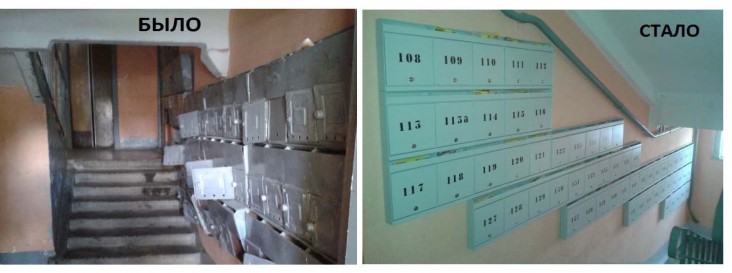Speeches Shim

Communities at the grass roots level are best positioned to help their most vulnerable members in facing the challenges of COVID-19. Tatyana Aleksandrovich, an alumna of several USAID-supported activities and programs, including the USAID Leadership in Local Communities program, which is implemented by the Office for European Expertise and Communication (OEEC), organized her neighborhood in a Minsk district to run errands for the elderly to protect seniors from potential exposure to the coronavirus infection.
Several years ago, Tatyana was unsure whether she had made the right decision when she moved to the neighborhood - mostly because of what she perceived to be her neighbors’ indifference. When she moved into her new apartment, she was disheartened by the shabby conditions of the stairways and the neglected public area that she now shared with about 200 neighbors in a multi-story residential building. At that moment she could not imagine that her annoyance would drastically change the life of local residents and her own.
It did not take her long to initiate changes. Tatyana organized her neighbors to maintain public oversight of the quality of communal services and encouraged them to contact local leaders to solve problems. She followed up with the local officials regarding the requests and gained their support. For example, in response to one the municipal office installed a waste management stand in the courtyard and expressed willingness to further cooperate with residents.
Tatyana’s journey as a local community activist began in 2015-2016, when she participated in USAID’s Leadership in Local Communities training, which focused on educating grassroots leaders to implement positive changes in their communities by engaging residents.
The leadership course changed Tatyana’s vision of local community development and the role of a local activist in its development. “When you want to make your local community cooperate the main goal is to establish good communications between neighbors. It helps to solve common issues, exchange ideas, build a common understanding of the situation, and develop trust,” Tatiana said.
Tatyana mobilized her neighbors to participate in the Good Neighbor competition organized by OEEC with the aim to support local initiatives. The team of neighbors purchased benches with OEEC funding and installed them using their own equipment and materials.
In 2017, Tatyana obtained a deeper understanding of community activism when she participated in USAID’s Community Connections professional exchange program, which provided her with additional approaches to support local community development. Tatyana’s Community Connections experience strengthened her belief that active participation is the key to efficiently resolving local issues. “When people get involved in the analysis and planning, then addressing whatever issue becomes much more effective,” noted Tatyana.
In spring 2018, she was elected chairwoman of the governing body of the territorial public self-government, which included 34 apartment buildings and about 15,000 residents. In more than three years, she has organized 30 meetings, with the enthusiastic participation of dozens of neighbors in addressing the need for housing improvements and residential care. The activists purchased new mailboxes and had them installed by the communal office, collected money for the replacement of stair railings and power panels, performed minor repair works, and participated in outdoor cleaning, landscaping, and beautification.
In late 2019, Tatyana took the lead in organizing locals to hold a barter market. Neighborhood residents enjoyed the exchange of clothes, shoes, and other personal belongings in their courtyard, and welcomed numerous passersby to join them. Most of the residents contributed to their stairwell’s New Year’s decorations and supported the organization of a children’s drawing competition.
But perhaps Tatyana’s most significant accomplishment came as the COVID-19 outbreak spread across Belarus. She immediately understood the threat the coronavirus presented to the elderly and most vulnerable in her neighborhood, so she organized local activists to run errands for older people in the neighborhood, to lessen their exposure. She spearheaded local community members to shop, provide medicine from the drugstore, and deliver other essentials to their elderly neighbors.
Today Tatyana shares her experience on how to unite neighbors and change the life of a community at public seminars, forums, and discussions all over Belarus as part of the OEEC team of community development consultants. She continues participating at OEEC Leadership in Local Communities courses, community development workshops, and master classes.
Since 2014, USAID has supported three rounds of the Leadership in Local Communities courses. As a result, 74 local leaders from 63 communities have identified more than 200 local issues, mobilized 7500 people to address local problems, and resolved more than 100 local issues. Six alumni were trained as community development consultants.

Comment
Make a general inquiry or suggest an improvement.